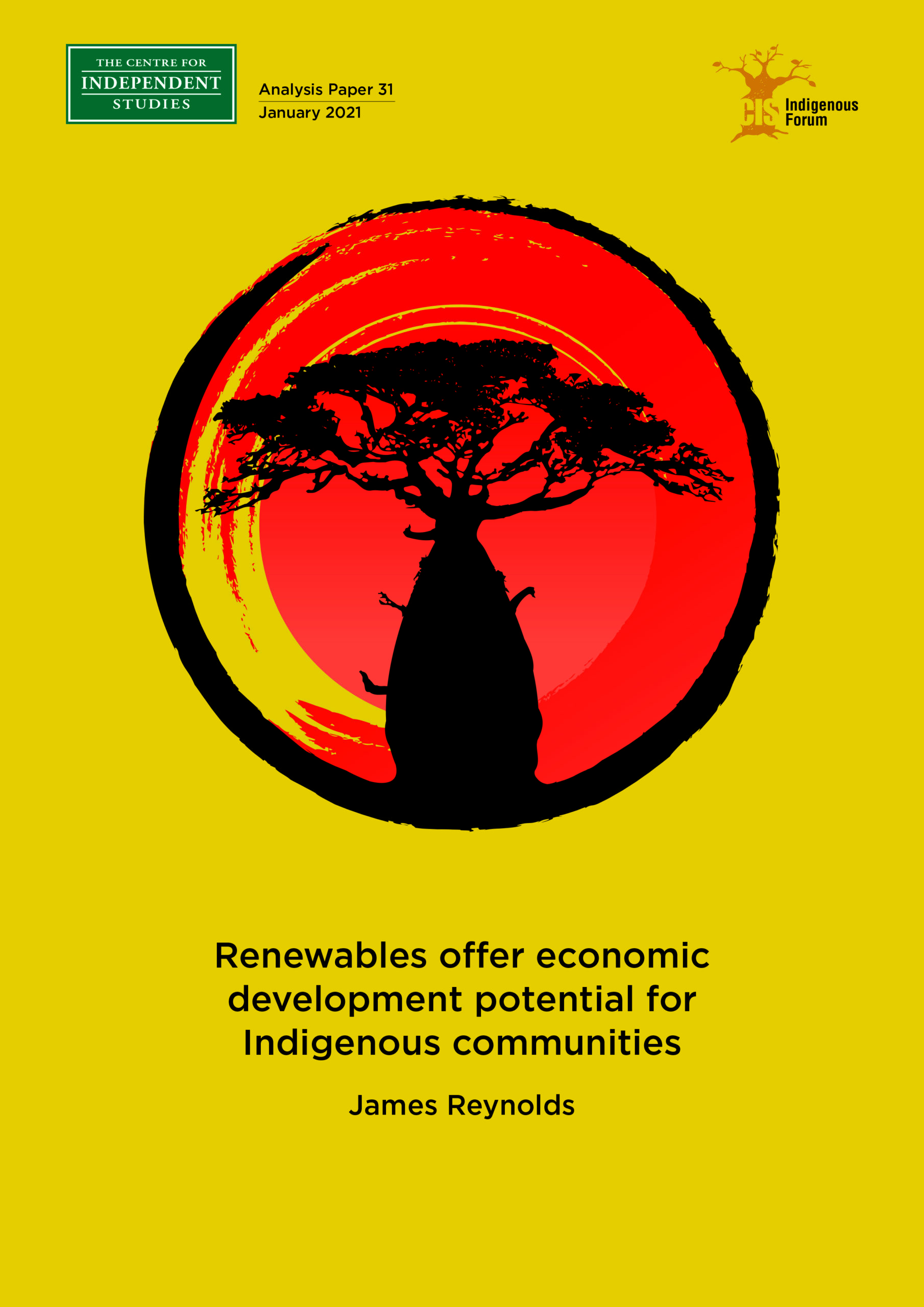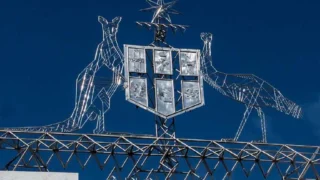
Australia’s electricity and energy industries are transitioning in response to political, policy financial and consumer forces calling for actions to reduce greenhouse gas (GHG) emissions and human impacts on climate change. The renewable energy transition provides an economic development opportunity for Indigenous people in regional and remote communities.
Indigenous people, and the organisations created to determine and manage land from native title processes, potentially have access to vast tracts of land that could provide the opportunity for Indigenous people to be involved in the large-scale renewable energy industry.
Renewable energy: economic development potential for Indigenous communities
This paper provides context to the renewable opportunity, outlining Indigenous people’s current interactions with renewable energy projects in regional and remote communities, and highlights the potential — and challenges.
The economic paradox and irony that increasing renewable energy to lower emissions is not necessarily translating into economic opportunity for Indigenous people should serve as a notice to policymakers, business people and Indigenous people and organisations — particularly those advocating for change and for a greater role for Indigenous people — that more needs to be done to ensure that Indigenous aspirations in this important area are not seen as a secondary aspiration for mainstream objectives.
Improving social and economic outcomes for Indigenous people and communities is not easy. The income, wealth and capability deficits endemic in remote communities creates barriers that take time to close the gap, while decades of substantive government interventions, controls and management where problem identification and solution development designed and largely serviced by non-Indigenous values, institutions, frameworks and approaches has shown to create further barriers.
Given the opportunity that the energy transition provides to Indigenous communities and businesses by way of being an integral stakeholder in the build out of renewable energy assets, and given the continued expansive role of governments in interventions into electricity supply to support renewable energy assets than it would be another missed policy opportunity to not focus on how these barriers are effectively addressed.
As the energy transition accelerates, causing fundamental changes to electricity supply systems, the role of government seems to be increasing, particularly in the form of direct funding of specific technology and projects. This presents an opportunity to ensure that government policy supports Indigenous communities’ economic development. In many respects, there are important government policies focused on supporting Indigenous businesses (such as procurement spend targets for sourcing from Indigenous businesses). Were there to be greater coordination between these existing policies and the government’s increasing role in renewable energy, it is likely to provide greater opportunities enhancing economic development outcomes. And where Indigenous communities and business had access to land suitable for renewable energy projects and associated infrastructure, the overall potential would be increased.
Electricity and energy are essential services and subject to continued focus by political institutions where the principal focus is on reliability and security of supply at affordable prices to industry and consumers. As a result, the energy industry and electricity sector are often the beneficiaries of significant government subsidies — sometimes direct, but often indirect — where governments set policies and apply schemes requiring participants to meet particular requirements.
The economic paradox and irony that increasing renewable energy to lower emissions is not necessarily translating into economic opportunity for Indigenous people should serve as a notice to policymakers, business people and Indigenous people and organisations — particularly those advocating for change and for a greater role for Indigenous people — that more needs to be done to ensure that Indigenous aspirations in this important area are not seen as a secondary aspiration for mainstream objectives.
Improving social and economic outcomes for Indigenous people and communities is not easy. The income, wealth and capability deficits endemic in remote communities create barriers that take time to close the gap, while decades of substantive government interventions, controls and management where problem identification and solution development designed, and largely serviced by, non-Indigenous values, institutions, frameworks and approaches have been shown to create further barriers.
Given the opportunity that the energy transition provides to Indigenous communities and businesses by way of being an integral stakeholder in the building of renewable energy assets, and given the continued expansive role of governments in interventions into electricity supply to support renewable energy assets then it would be another missed policy opportunity to not focus on how these barriers could be effectively addressed.
FURTHER READING: Back to Basics: A new model for business creation in remote Indigenous communities










